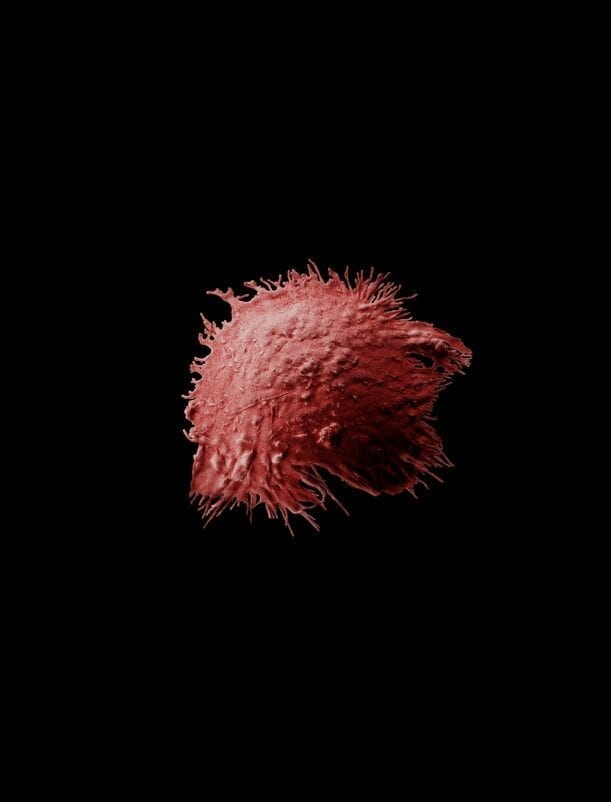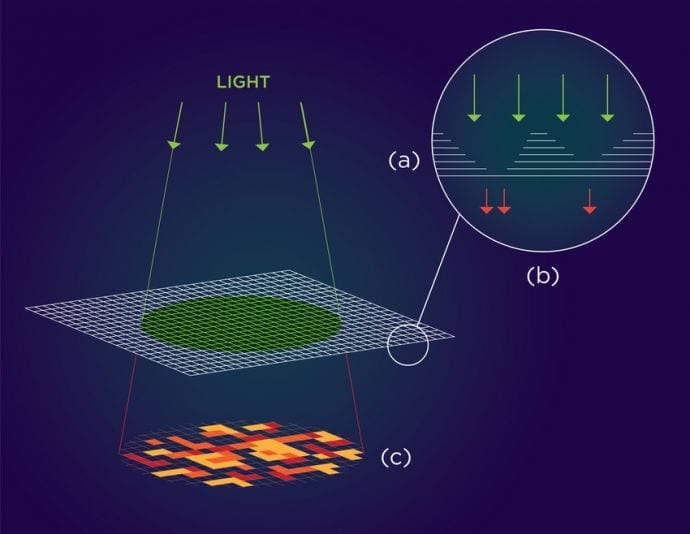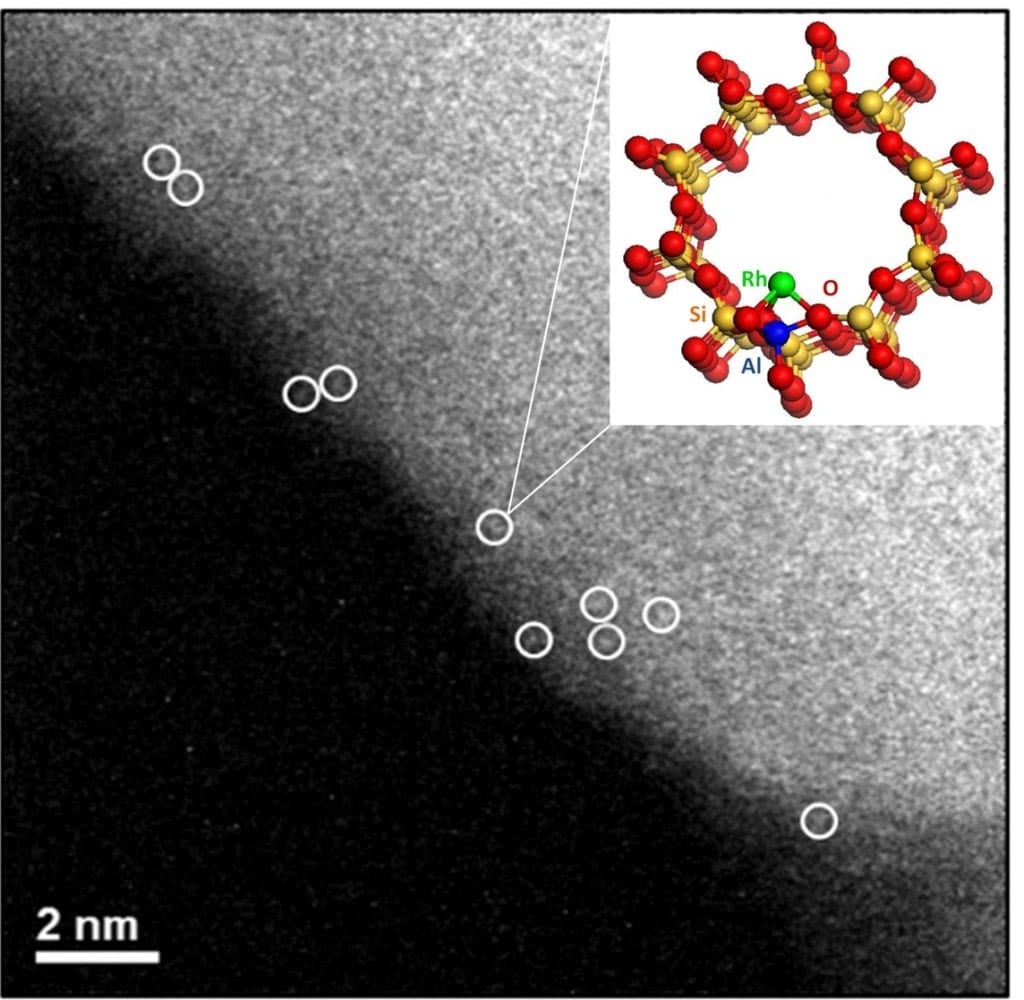
An antibody therapy against a key inflammatory molecule involved in migraines reduces the number of headaches that chronic migraine patients experience per month in a phase III trial
A new study of fremanezumab, an immunotherapy that counteracts one of the molecules released during migraine, was found successful in reducing the number of days that chronic migraine sufferers experienced headaches. The results of the phase III clinical trial were published November 29, 2017 in the New England Journal of Medicine.
The World Health Organization estimates that between 127 and 300 million people around the world experience chronic migraine, defined as 15 or more headaches per month for at least three months. The disease can be debilitating and although a number of interventions exist, many only work for a certain time before they fail to prevent or relieve pain.
“This therapeutic approach offers new hope for people whose migraines cannot be treated with existing medicine,” says Stephen D. Silberstein, M.D., principal investigator of the HALO CM trial, Professor of Neurology and Director of the Jefferson Headache Center at the Vicki & Jack Farber Institute for Neuroscience at Thomas Jefferson University Hospital. “Our worldwide effort to evaluate this novel therapeutic approach has shown positive results and was safe in patients.”
Fremanezumab, a monocolonal antibody developed by Teva Pharmaceuticals, is a biological agent that binds to and blocks the action of a migraine-associated protein called calcitonin gene-related peptide (CGRP). Mounting evidence of its importance in migraines has made CGRP a focal point of research and drug development. The peptide is released at high levels during migraine in response to inflammation, and triggers a cascade effect that stimulates more CGRP release. This results in increasing sensitivity of the brain to pain. By blocking this peptide, doctors hope to break the cycle of increasing inflammation and increased pain sensitivity that contributes to migraine headaches.
Researchers from 132 sites across nine countries enrolled 1130 patients and randomly assigned them to one of three groups: one that received quarterly treatments, a group that received one treatment per month, and one that received placebo injections. The trial lasted for 16 weeks, with a 12-week treatment window.
The results of the trial show that treatment with fremanezumab reduced the number of days patients experience headache by an average of 4.3 days with quarterly treatment and 4.6 days with monthly treatment. “We saw some patients with 100 percent reduction in migraine, others with 75 percent reduction,” says Dr. Silberstein. The level of response varied between patients.
The researchers also looked at how well the therapy worked relative to each patient’s headache burden. They calculated the percent of patients who had more than a 50 percent reduction in the number of days they experienced either a severe or moderate headache per month. Using this measure, the researchers saw that 37.6 percent of patients on the monthly regimen, and 40.8 percent on the quarterly regimen had at least a 50 percent reduction in the number of moderate headaches per month, compared to 18.1 percent in the placebo group.
The therapy had a favorable safety profile with the most common adverse event reported as irritation at injection site, which was reported in the placebo group as well.
“If approved, this treatment would provide physicians with an important new tool to help prevent migraine, reduce a patient’s migraine load, and potentially help patients return to normal” says Dr. Silberstein.
Learn more: Phase III Immunotherapy Trial for Migraine Shows Positive Results
The Latest on: Migraines
[google_news title=”” keyword=”migraines” num_posts=”10″ blurb_length=”0″ show_thumb=”left”]- These Incredibly Popular Drugs Have Been Linked to Migraineson April 27, 2024 at 6:26 pm
According to research published in Neurology Clinical Practice, an official journal of the American Academy of Neurology, individuals who use acid-reducing medications may face a greater risk of ...
- Florida man’s migraine mystery reveals tapeworm in brain; is undercooked bacon the cause?on April 26, 2024 at 1:19 pm
A Florida man seeking outpatient treatment for a persistent and severe headache soon found himself in the hospital’s intensive care unit, after learning that his chronic migraines were caused by a ...
- Florida Man Discovers 'Severe' Migraines Were Caused by Tapeworm in Brainon April 25, 2024 at 4:35 pm
A 52-year-old man in Florida has been discharged from the hospital after receiving treatment for a life-threatening tapeworm that was found in his brain. The parasite is thought to have come from ...
- Acid Reflux Drugs Linked to Increased Risk of Migraineson April 25, 2024 at 2:14 pm
A new study strongly links usage of acid reflux treatments with an increased risk of experiencing migraines or severe headaches.
- Study finds acid reflux drugs may trigger migraineson April 25, 2024 at 6:24 am
Acid reflux drugs may trigger migraine, warns new research. American scientists found that people who take acid-reducing tablets may be at higher risk of suffering debilitating headaches than those ...
- Common heartburn drugs taken by millions 'increase the risk of agonising migraines'on April 25, 2024 at 4:23 am
Millions of Britons could be at risk of agonising migraines as a side effect of commonly prescribed drugs. New research has revealed that certain heartburn medications are linked to debilitating ...
- At 27, I get migraines every day – I’ve gone from carefree to drained and anxiouson April 25, 2024 at 4:00 am
Migraines affect roughly 4.5 million people in England but the first oral treatment could soon be available on the NHS ...
- Acid reflux drugs could be causing migraines, US research suggestson April 24, 2024 at 1:13 pm
Dealing with stomach acid reflux can sometimes be a headache, with advice often including lying on one side, not lying down after eating, changing diet, chewing slower or quitting smoking. And while ...
- Migraines may be triggered by 'overprescribed' acid reflux drugs, study findson April 24, 2024 at 1:00 pm
New research has found that medication that is taken to deal with acid reflux could be a trigger of migraines as scientists stress further investigation is required.
- ‘30 years of migraines have robbed me of a normal life. Finally, there’s hope’on April 19, 2024 at 12:00 am
I can’t remember what life is like without migraines, probably because I’ve been getting them for more than 30 years. This condition has affected my quality of life in so many ways and instead of ...
via Google News and Bing News










